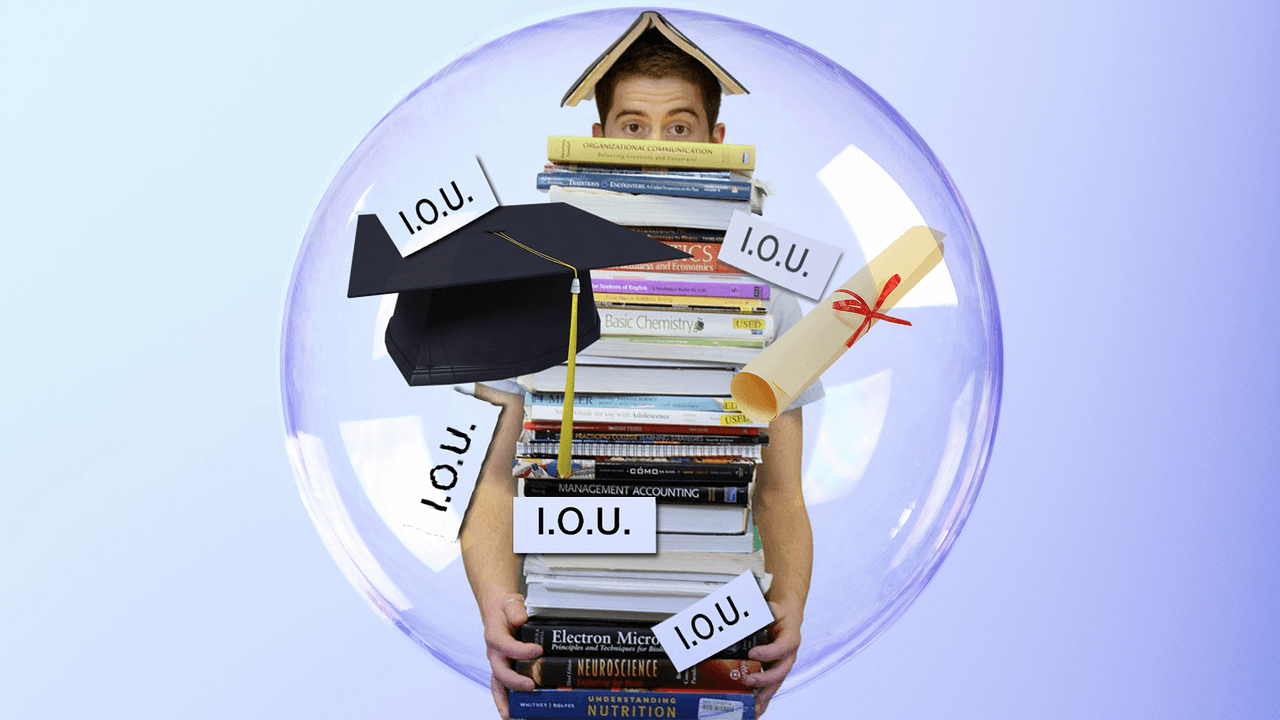Student-centric advice and objective recommendations
Higher education has never been more confusing or expensive. Our goal is to help you navigate the very big decisions related to higher ed with objective information and expert advice. Each piece of content on the site is original, based on extensive research, and reviewed by multiple editors, including a subject matter expert. This ensures that all of our content is up-to-date, useful, accurate, and thorough.
Our reviews and recommendations are based on extensive research, testing, and feedback. We may receive commission from links on our website, but that doesn’t affect our editors’ opinions. Our marketing partners don’t review, approve or endorse our editorial content. It’s accurate to the best of our knowledge when posted. You can find a complete list of our partners here.
Do Student Loans Affect Buying a House?
 By
Kayla Korzekwinski
By
Kayla Korzekwinski 
Kayla Korzekwinski is a Scholarships360 content writer. She earned her BA from the University of North Carolina at Chapel Hill, where she studied Advertising/PR, Rhetorical Communication, and Anthropology. Kayla has worked on communications for non-profits and student organizations. She loves to write and come up with new ways to express ideas.
Full BioLearn about our editorial policies

Maria Geiger is Director of Content at Scholarships360. She is a former online educational technology instructor and adjunct writing instructor. In addition to education reform, Maria’s interests include viewpoint diversity, blended/flipped learning, digital communication, and integrating media/web tools into the curriculum to better facilitate student engagement. Maria earned both a B.A. and an M.A. in English Literature from Monmouth University, an M. Ed. in Education from Monmouth University, and a Virtual Online Teaching Certificate (VOLT) from the University of Pennsylvania.
Full BioLearn about our editorial policies

If you’re one of the more than 43.2 million Americans who have student loan debt and you hope to buy a house one day, it’s useful to know how student loans affect buying a house. Student loan debt doesn’t exclude anyone from buying a house, but it can make it more challenging. Continue reading to learn the ways that student loans affect buying a house!
Down payment
Most mortgages, which are loans used to buy a house, require a down payment. A down payment is a portion of the house cost that is paid at the time of closing.
Student loan payments can take a large chunk of your income. It can be difficult for people with student loan debt to save enough to make a down payment. According to the National Association of Realtors, 61% of non home-owning millennials are delaying buying a house because of their student loan debt. In most cases, student loan payments prevented them from saving enough for a down payment.
Debt-to-income ratio
One of the biggest factors that lenders consider when evaluating an applicant’s eligibility for a mortgage is their debt-to-income ratio (DTI). This number is a percentage that compares your debt, including student loans, to your annual income. Lenders want to see an applicant with a low debt-to-income ratio. This shows that the applicant is able to manage their debt responsibly, and that they will pay their mortgage.
To calculate your DTI, add up all of your recurring monthly debts–for example, student loan payments, credit card payments, and car payments. Use the minimum payment amount for each debt. Then, divide that number by your gross monthly income–your earnings before taxes and other withholdings. Multiply that number by 100 to get a percentage.
Generally, a DTI of 36% or less is ideal for lenders. If your DTI is greater than 50%, you may want to focus on paying off your debts before buying a house.
Credit score
Another number that can determine your ability to buy a house is your credit score. A credit score is a statistical number that is used to evaluate a borrower’s creditworthiness. Credit scores consider factors like a borrower’s total debt and payment history. It can be used to evaluate how likely the borrower is to repay their debts. Mortgage lenders want to see a high credit score.
Student loans can have a positive or negative impact on your credit score. Making student loan payments on time and in full can improve your credit score. Missing payments or allowing loans to go into default can harm your credit score, making it more difficult to buy a house.
See also: How do student loans affect credit?
Before you consider buying a house, be sure to understand how your student loan debt may affect your ability to do so.
Keep on reading
Wondering how much student loan debt is too much? Maybe you want to know how long does it take to build credit? We have answers! Learn all about consolidating and refinancing student loans too!
See also: The best student credit cards
Frequently asked questions about students loans and buying a house
Do student loans make it harder to get a mortgage?
On the other hand, borrowers who consistently make student loan payments on-time may also receive a benefit when it comes time to apply for a mortgage. Having a long-standing debt that you’re on good terms with helps improve your credit score. So, with this piece of credit history, the mortgage provider might be more willing to lend to you.
Does FHA consider student loans?
Can I get a mortgage if I have student loans in deferment?
If, on the other hand, you deferred your loans due to economic hardship, cancer treatments, or other factors based on hardship, you will probably have a hard time getting a mortgage. This will not be because of the deferment itself, but rather the circumstances which caused the deferment.





